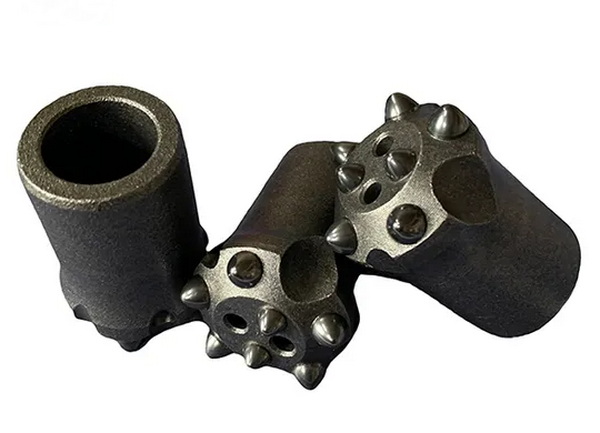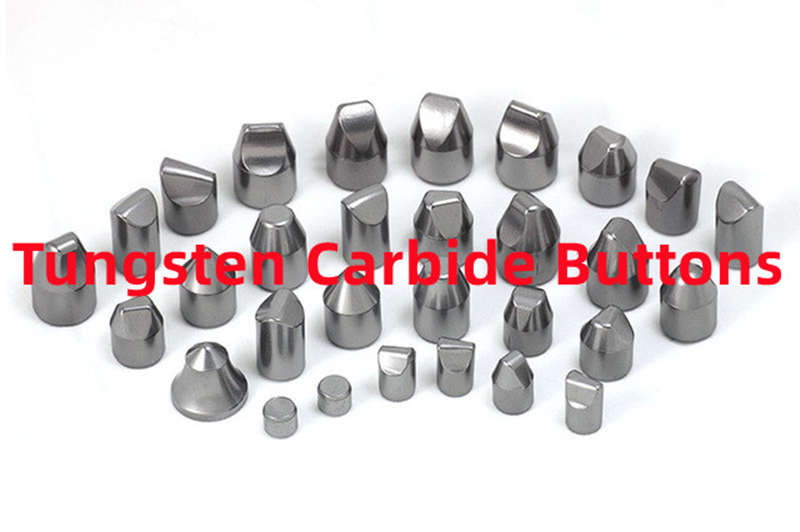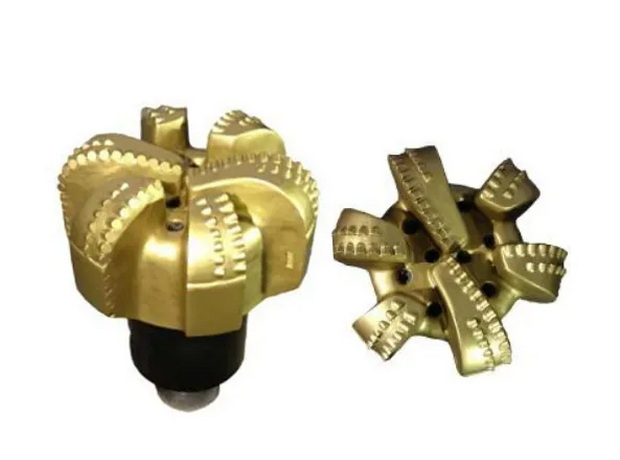Content Menu
● Key Properties of Boron Carbide
● Applications in Oil Drilling
>> 1. Drill Bits and Cutting Tools
>> 2. Mud Pump Components
>> 3. Blowout Preventer (BOP) Seals
● Applications in Mining
>> 1. Cutting and Tunneling Tools
>> 2. Ore Processing Equipment
>> 3. Hydraulic Fracturing Nozzles
● Comparative Performance
● Manufacturing Processes
● Challenges and Innovations
● Conclusion
● FAQs
>> 1. Why is boron carbide preferred over tungsten carbide in deep drilling?
>> 2. Can boron carbide withstand hydrogen sulfide exposure in oil wells?
>> 3. How are large boron carbide components like crusher liners manufactured?
>> 4. What maintenance benefits do boron carbide mud pump parts provide?
>> 5. Are boron carbide products recyclable?
● Citations:
Boron carbide (B₄C) has emerged as a transformative material in extreme industrial environments due to its unparalleled combination of hardness (Mohs 9.5+), lightweight properties (density 2.52 g/cm³), and chemical inertness[1][7]. In oil drilling and mining operations, these characteristics make boron carbide products indispensable for enhancing equipment durability, operational efficiency, and safety. This article explores their critical applications across both industries.

Key Properties of Boron Carbide
Boron carbide products excel in harsh conditions due to:
- Extreme hardness: Second only to diamond and cubic boron nitride[7], enabling superior wear resistance.
- Low density: 30% lighter than tungsten carbide (WC), reducing tool weight without compromising strength[3].
- Thermal stability: Retains structural integrity up to 2,350°C melting point[4].
- Corrosion resistance: Inert to most acids, alkalis, and organic solvents[6].
These properties are leveraged in drilling and mining tools subjected to abrasive wear, high pressures, and corrosive environments.
Applications in Oil Drilling
1. Drill Bits and Cutting Tools
Boron carbide coatings extend the lifespan of drill bits by 200–300% compared to tungsten carbide[3]. The material's hardness allows efficient penetration through:
- Hard rock formations (e.g., granite, basalt)
- Abrasive sandstone layers
- Corrosive saltwater-saturated strata
Composite drill bits combining boron carbide with silicon carbide (SiC) achieve fracture toughness up to 4 MPa·m²[7], preventing catastrophic failures during deep-sea or shale drilling.
2. Mud Pump Components
Mud pumps circulate drilling fluid at pressures exceeding 7,500 psi. Boron carbide liners and pistons resist:
- Erosion from silica-laden fluids
- Chemical degradation in acidic/alkaline muds
- Fatigue from cyclic loading
Studies show boron carbide components reduce pump maintenance intervals by 40%[9].
3. Blowout Preventer (BOP) Seals
In BOP systems critical for well control, boron carbide seals provide:
- Leak-proof performance at 15,000 psi pressures
- Resistance to hydrogen sulfide (H₂S) corrosion
- Minimal friction during rapid actuation
Applications in Mining
1. Cutting and Tunneling Tools
Continuous miners and tunnel boring machines use boron carbide-enhanced picks to:
- Cut through iron ore, coal, and kimberlite at 50% faster rates[6]
- Reduce dust generation via sharper, longer-lasting edges
- Operate in high-temperature environments (e.g., deep mines)
2. Ore Processing Equipment
Crushers and ball mills lined with boron carbide ceramics exhibit:
- 90% reduction in wear compared to manganese steel[10]
- Contamination-free grinding for rare earth mineral processing
- Lower energy consumption due to smoother surfaces
3. Hydraulic Fracturing Nozzles
In hydraulic fracturing, boron carbide nozzles achieve:
- 50% higher flow rates than conventional designs[9]
- Resistance to erosion from proppants (e.g., silica sand)
- Precision fluid jets for optimized fracture networks

Comparative Performance
| Material | Hardness (GPa) | Density (g/cm³) | Corrosion Resistance |
| Boron Carbide (B₄C) | 33 | 2.52 | Excellent |
| Tungsten Carbide (WC) | 22 | 15.6 | Moderate |
| Silicon Carbide (SiC) | 28 | 3.21 | Good |
Boron carbide outperforms alternatives in weight-critical and high-stress applications[7].
Manufacturing Processes
Boron carbide products are produced via:
1. Carbothermic Reduction: B₂O₃ + 7C → B₄C + 6CO at 2,400°C[1][10].
2. Hot Pressing: Sintering at 2,200°C under 40 MPa pressure for 99% density[7].
3. Additive Manufacturing: Binder jetting for complex geometries like custom drill bits.
Challenges and Innovations
- Cost: Raw boron carbide powder costs $75–$101/lb[4], but lifecycle savings justify upfront investments.
- Brittleness: Hybrid composites (e.g., B₄C + SiC) improve fracture toughness[7].
- Machining: Post-sintering diamond grinding ensures ±5 μm precision[7].
Conclusion
Boron carbide products revolutionize oil drilling and mining by delivering unmatched durability, efficiency, and safety. From drill bits that outlast traditional tools by 3x to fracking nozzles that optimize resource extraction, this material addresses the industry's most pressing challenges. As manufacturing techniques advance, boron carbide will likely dominate next-generation industrial equipment.

FAQs
1. Why is boron carbide preferred over tungsten carbide in deep drilling?
Boron carbide offers higher hardness (33 vs. 22 GPa) and 84% lower density, reducing tool weight while improving wear resistance[7][9].
2. Can boron carbide withstand hydrogen sulfide exposure in oil wells?
Yes. Its chemical inertness prevents degradation in H₂S-rich environments, unlike steel components[6].
3. How are large boron carbide components like crusher liners manufactured?
Isostatic pressing at 300 MPa followed by sintering at 2,300°C produces uniform, dense parts up to 500×500 mm[10].
4. What maintenance benefits do boron carbide mud pump parts provide?
They extend service intervals from 500 to 1,200 hours by resisting erosion and corrosion[9].
5. Are boron carbide products recyclable?
Yes. Spent components can be crushed and reused in abrasive applications or refractory mixes[2].
Citations:
[1] https://www.eag.com/blog/boron-carbide-for-use-in-industrial-and-life-saving-products/
[2] https://www.washingtonmills.com/products/boron-carbide-b4c
[3] https://www.3m.com/3M/en_US/p/d/b49000148/
[4] https://micronmetals.com/product/boron-carbide-powder-5/
[5] https://www.huanghewhirlwind.com/Applications-and-Advantages-of-Cubic-Boron-Carbide-Powder.html
[6] https://www.technical-ceramics.com/en/materials/boron-carbide/
[7] https://precision-ceramics.com/materials/boron-carbide/
[8] https://www.sourcifychina.com/boron-carbide-guide-in-depth/
[9] https://www.milessupply.com/product/h-and-k-style-boron-carbide-venturi-nozzles/
[10] https://ggsceramic.com/news-item/a-comprehensive-guide-to-boron-carbide-ceramics
[11] https://seed2020.en.made-in-china.com/product/ZdAEswBJficT/China-Boron-Carbide-Silicon-Carbide-Sandblasting-Venturi-Nozzles-with-Jacket-for-Cleaning-The-Surface.html
[12] https://pubs.usgs.gov/periodicals/mcs2024/mcs2024-boron.pdf
[13] https://www.azom.com/article.aspx?ArticleID=5809
[14] https://www.shutterstock.com/search/boron-carbide
[15] https://www.vacfurnace.com/vacuum-furnace-news/introduction-and-application-of-boron-carbide/
[16] https://www.3m.com/3M/en_US/p/c/advanced-materials/ceramics/boron-carbide/
[17] https://www.guidechem.com/question/what-are-the-main-applications-id137763.html
[18] https://www.theassay.com/articles/analysis/boron-labelled-a-strategic-commodity-for-most-countries/
[19] https://www.linkedin.com/pulse/ultimate-guide-boron-carbide-production-cost-report-amit-sharma-lq5ec
[20] https://www.mining.com/forget-rare-earths-boron-is-the-critical-mineral-to-track/
[21] https://www.gia.edu/gems-gemology/fa13-gni-boron-carbide-diamond-imitation
[22] https://www.serenco.nl/en/spot-weld-drill-boron-killler-uses-tungsten-carbide-drills.html
[23] https://pubchem.ncbi.nlm.nih.gov/compound/123279
[24] https://i-car.co.nz/wp-content/uploads/2018/10/Working-with-Boron-Steel-NovDec-2005-compressed.pdf
















